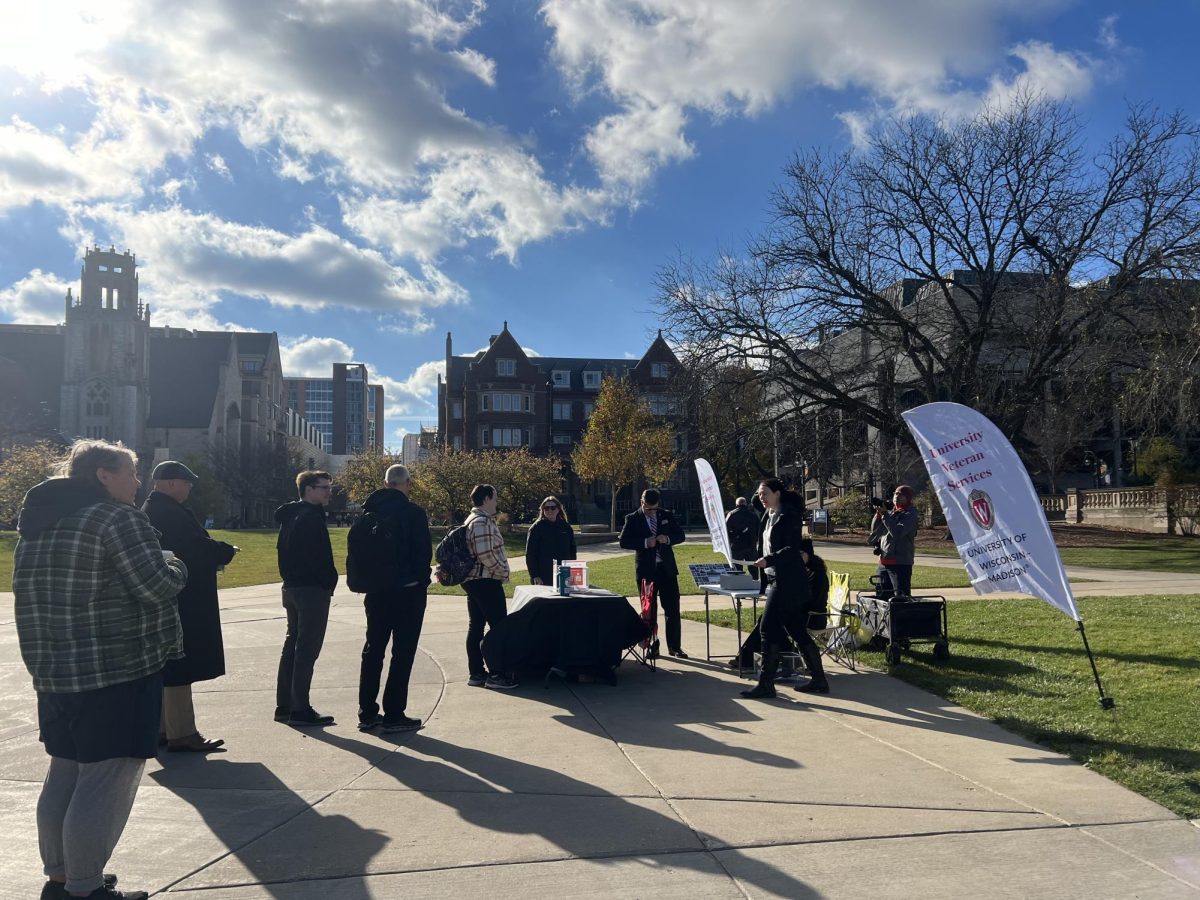The Islamic STEM Association has joined the list of Registered Student Organizations at the University of Wisconsin this spring. Co-founded by Khadijah Dhoondia and Norah Alsharif, ISA is designed to uplift Muslim students in STEM fields and conduct conversations centered around the intersection of science and theology.
“[Our goal is] to find unity between those two identities,” Alsharif said. “One of the reasons why we have this organization is to deliver resources to college students, but it’s also a way to support the next generation, not only the people who are involved in STEM right now but [others who] are also thinking about it.”
Though there are organizations on campus for the Muslim community, such as the Muslim Student Association, Alpha Lamda Rho and Alpha Lamda Mu, prior to ISA’s conception, there were no clubs or organizations specifically dedicated to Islamic students interested in STEM. As a result, Alsharif and Dhoondia started planning for a Islamic STEM focused organization last semester and officially registering as an RSO in January.
Alsharif attributed a lack of representation in STEM fields as one of the motivations behind the organization’s formation in the first place.
“Currently, I think there is a lot of interest for Muslim students to pursue STEM fields,” Dhoondia said. “I see that a lot of individuals in our community are interested in STEM, and that’s actually a huge factor for starting this organization by seeing that high interest between those two identities.”
A main goal of the organization is to participate in scholarly activities through small-group discussions held at each meeting. Dhoondia has even connected with the Initiative on Islam and Medicine to help with this fundamental part of the organization.
II&M is an organization dedicated to improving the health of American Muslims by offering scholarships, workshops, consultations and educational opportunities. According to Dhoondia, II&M has both acted as a guide while developing ISA and provided resources to help grow the organization. This collaboration will allow for the creation of discussion topics that promote participation and inclusivity when exchanging ideas between science and religious disciplines, Dhoondia said.
ISA also plans to provide career development opportunities to members. Those interested will be put into contact with Muslims who are professionals in STEM fields to share an understanding of how Islamic values intersect with scientific fields. Additionally, the organization will conduct outreach programs with the goal of developing personal growth through connection with the community.
Struggle over shared governance continues at UW, inside Capitol
“[Members will] get a chance to engage with local communities to help navigate STEM fields,” Dhoondia said. “We’ve actually connected with some local elementary schools so that our members not only get a chance to practice science communication skills, but also give back to the local community by educating others on science, especially local youth.”
Another main goal of the founders is to address the divide between religion and science. According to Dhoondia, through an open dialogue, ISA hopes to create a more productive, ethical environment which addresses the tension that surrounds these often conflicting concepts.
Dhoondia believes that discussions around faith and science, while sometimes seen as controversial or avoided altogether, can actually serve to enhance understanding in both areas. For her, this perspective underscores the potential for dialogue to transform perceived barriers into bridges that fostering a more integrated and holistic view.
“We felt that this topic needed to be highlighted,” Dhoondia said. “Being able to navigate these two intersecting identities can often be challenging and … helping them [students] to achieve excellence in both their spiritual and professional identities was the goal here.”
Alsharif also shares this belief in the symbiotic relationship between STEM and religion. She said it inspires the interconnectedness between the two despite their conflicting natures.
“I personally feel that it [connection between science and religion] makes me feel more religious or more connected to my religion when I see Islam supporting science or science supporting Islamic practices,” Alsharif said. “This is one of the goals of our organization — to show what science supports in Islam.”
ISA’s kickoff meeting will be held Feb. 12 and is centered on discussion of Islamic epistemology and philosophical reasoning exercises. Later in the semester, ISA plans to hold a panel discussion to celebrate Women’s History Month, featuring female Muslim graduate students. More information for their upcoming events can be found at their website or their Instagram page.













